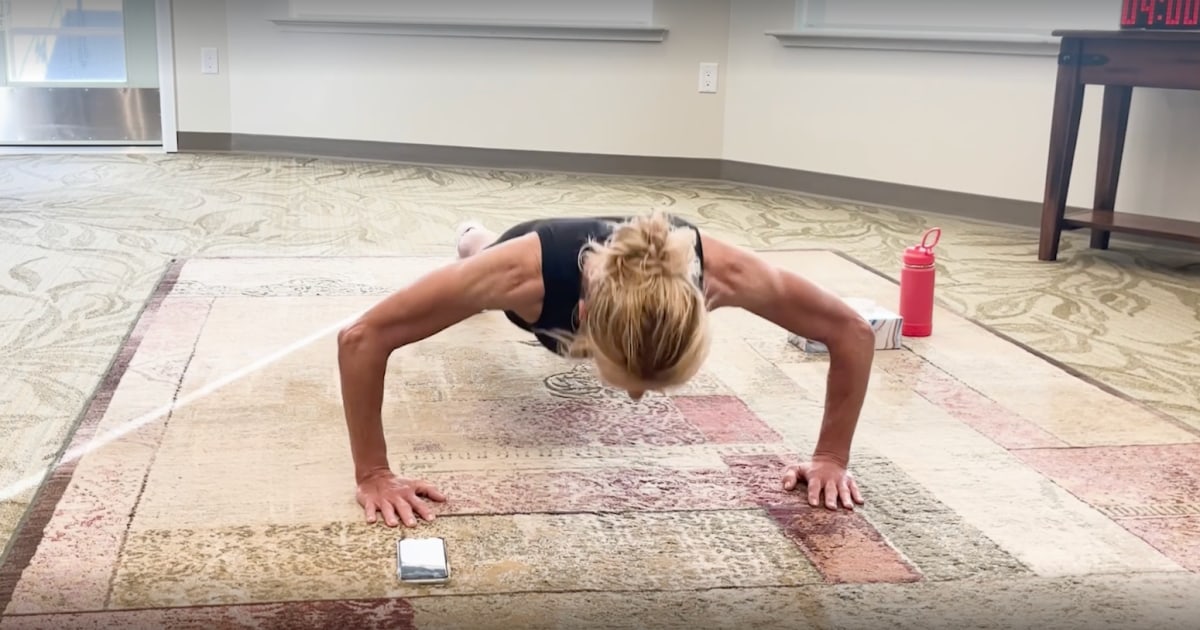Fitness
How regimented fitness routines help make these CFOs better leaders

The fundamentals of leadership that fall outside the elements learned in school and on-the-job training are some of the hardest to prepare for and perfect during a career journey that winds up in the C-suite. Many business leaders looking to be the best version of themselves, both in and out of work, have found a pathway through physical fitness.
While this has been a testament to many CFOs who participated in the 6 a.m. CFO series, maintaining a physical fitness routine provides physical well-being benefits and allows CFOs to exercise their ability to achieve goals, manage time, overcome challenges and create health-conscious environments.
Here are four finance leaders who credit physical fitness with making them better business leaders.
Janice Stucke, CFO of CREW Network
Janice Stucke, CFO of real estate business networking organization CREW Network is a triathlete, meaning she competes in competitions that involve running, biking and swimming. According to her, the training required has increased her ability to manage a busy schedule and sharpened her focus on tasks like digital transformations.

Janice Stucke, CFO of CREW Network
Permission granted by Janice Stucke
“I am very disciplined about training and I am very disciplined around time management,” Stucke said. “Training helps me break up my day into obtainable targets. I’m currently focused on several tech implementations, and I break up the implementation process the same way my coach sets up my training schedule.”
“It keeps me and everyone else on track so we hit deadlines and troubleshoot within the necessary time frame to stay on target. It also prevents projects from dragging out, which greatly affects morale. Knowing the plan and the goal and executing that plan leads to satisfaction at the end of the process — whether it be a tech implementation or a race goal.”
She also noted the ability of fitness to help with stress management. “On the surface, training helps me process the general stress and anxiety around work. It also helps prevent burnout because most of our stress is stored in our bodies, so you cannot think your way out of stress. Training can become a meditative level, which helps release stress on a cellular level within the body.”
Chris Ortega, CEO and fractional CFO of Fresh FP&A
Being physically fit has allowed Chris Ortega, CEO and fractional CFO of Fresh FP&A — a consulting service specializing in fractional CFO and advisory services — to develop the grit and grind necessary to leave a CFO position and start his own business. With a career in boxing before launching his current endeavor, Ortega says incorporating fitness and health into the culture of a company is something he advises his clients to do regularly. When he was a CFO, he made sure it was a major focus throughout the organization.

Chris Ortega, CEO and fractional CFO of Fresh FP&A
Permission granted by Chris Ortega
“I think a healthy workforce is super important for any business looking to grow, and even more important for CFOs looking to improve their own set of skills,” Ortega said. “If you have beer and unhealthy snacks around the office, switch those things out for fresh fruit, soda water and healthier snacks,” he said. “Partner with a local deli and get the office fresh fruit, because you have to understand that if you want your people to be sharp and hardworking, they can’t be sitting around the office eating cookies, chips and drinking soda and beer.”
Ortega also advises leaders to create healthy environments that incorporate culture enhancement, work-life balance and fun all in one. Physical fitness activities within the organization he says can do just that. While he stressed it’s important not to make these things mandatory, creating fun opportunities involving fitness for willing participants can help drive a healthy culture at multiple levels.
“I always wanted people to be able to say I wasn’t just the CFO, but that I was Chris, the CFO they played basketball with.”

Chris Ortega
CEO and fractional CFO of Fresh FP&A
“I used to play basketball with members of my company every Thursday, and it was a great way to break up the office a bit and promote camaraderie,” Ortega said. “Even if we had a stressful day, we knew that the 4 p.m. slot on our calendar was blocked out, and we were all going to blow off some steam and do something we were looking forward to as a team. On top of that, I always wanted people to be able to say I wasn’t just the CFO, but that I was Chris, the CFO they played basketball with.”
Ortega also mentioned how he brought members of his finance team to sparring sessions at his boxing gym. “When your employees say, ‘Man, I get to punch the CFO,’ and we take pictures as a team, hang out and talk before and after, it really helps create an encouraging atmosphere where people want to work and achieve success together.”
Jack McCullough, president of the CFO Leadership Council
Jack McCullough, president of the CFO Leadership Council, is constantly on the road. As the face of an expanding leadership organization, the challenge of staying physically fit for him, much like many of the finance chiefs he meets, requires fortitude. But he says for him and most of the CFOs he talks to, physical fitness requires the ability to push limits and an environment that makes the process enjoyable.

Jack McCullough, president of CFO Leadership Council
Permission granted by Jack McCullough
“I always advise CFOs to remember the importance of fitness, emphasizing that it doesn’t require running an Ironman or spending two hours a day in the gym — although several of our members do exactly that,” McCullough said. “Just 30 to 45 minutes a day, five days a week is all it takes to maintain health, so the key is finding something you enjoy. Some like running or playing competitive sports; others prefer lifting weights or practicing yoga. It doesn’t matter what you choose, as long as it challenges you and feels like a pleasure, not a chore.”
In his office, even a quick window of time is enough to get a quick workout. “Personally, I have a dumbbell rack and yoga mat in my office,” McCullough said. “They take up almost no room and remove excuses about being too busy. No matter how busy I am, I can get 20 minutes in.”
Gresford Gray, CFO of Coforma
Former drill sergeant and military police officer Gresford Gray, now CFO of Coforma — a company that specializes in building technology to help streamline healthcare processes for disabled veterans — has had physical fitness ingrained into his routine since before his days in corporate finance.
“I’ve made up my mind that taking time to exercise regularly is mandatory, even when I travel,” Gray said. “Health is wealth, and having the right mindset is the start.”
Although he is also a triathlete, Gray credits his physical fitness not to long runs or a regimented routine alone, but to doing the little things throughout the day that, over time, make a significant difference.

Gresford Gray, CFO of Coforma
Permission granted by Gresford Gray
“Focus on doing some form of physical activity, even if it’s going for a walk or taking the stairs instead of the elevator. Another key aspect is making micro progress, like finding 10 to 15 minutes of activity instead of thinking you need an hour or more. It’s a useful mind hack.”
Gray, who gained experience as an auditor at a Big Four firm in the late ’90s and through his military service, also stressed the importance of discipline in maintaining strong leadership qualities over a career. “Discipline is part of everything we do since we have one body, one life,” he said. “It’s vital to maintain some kind of fitness routine. In fact, it’s not just a ‘habit,’ but a ‘lifestyle.’ Doing a fitness routine disrupts the danger of burnout since you take a physical break from the constant grind.”









